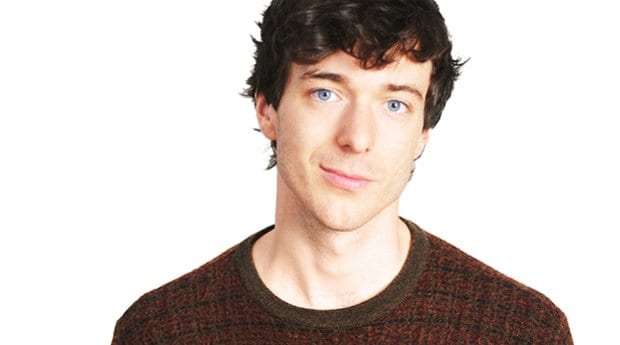For playwright Jordan Tannahill, it wasn’t the story about a gay teen’s suicide that infuriated him the most.
“A good place to start any project is a place of anger,” says Tannahill of his play Late Company, based loosely on the story of 15-year-old Jamie Hubley, who killed himself in Ottawa in 2011 after enduring years of homophobic torment. “The anger was first driven by Jamie’s death, but what really got under my skin was the reaction from the federal Conservatives following the suicide.”
The response Tannahill took issue with came in the form of an It Gets Better video created by a group of Conservative MPs and dedicated to Hubley’s memory.
“The video missed the point of Dan Savage’s campaign completely,” Tannahill maintains. “It is intended for queer adults to let LGBT youth know they, too, have experienced what they are going through, and they have come through it okay. What was really galling was the irony of the Conservative Party creating a video given their own stand on queer issues.”
Tannahill used Hubley’s suicide as the jumping-off point for Late Company, but he says his play is as much an exploration of parenting in the 21st century and how we process grief as it is about politics and bullying.
“The play is really about the complexity of parenting in contemporary life and the fallacy of closure in the way we attempt to expedite grief,” he says. “This idea of bullying is really a means to an end to explore these more universal themes than simply schoolyard cruelty.”
The play also addresses questions around the hot-button issue of social media’s role in bullying and who needs to take what responsibility in monitoring the online activity of children. “Does that responsibility lie with the parents, or the schools, or is there a collective responsibility when it comes to cyberbullying?” he asks. “Sometimes it really does take a village.”
In Late Company, two sets of parents meet for dinner as part of a restorative justice exercise. On one side of the table sit the parents of Joel, a teen who committed suicide. Sitting across from them are the parents of one of Joel’s tormentors and their son, Curtis.
Calling the process “a construct where pleasant, politically correct middle-class white families look for closure in their grief,” Tannahill insists that real life is nothing like this.
“I’m personally very skeptical of these types of self-therapy and healing, and I take the piss out of it a bit in the play,” he says. “Ultimately, grief is really messy and everyone is to blame. It really isn’t about forgiving others; it is about forgiving yourself and the role both sides play in the tragedy. These two families seek closure and try to expedite that closure, but sometimes grief is endless.”
It was Tannahill’s take on grief and the difficulties of finding closure that attracted Touchstone Theatre’s artistic director, Katrina Dunn, to Late Company.
“It is an interesting, reflective story, exploring what happens to those that are left behind and responsible, in a large part, after the fact. They are all trying to process the role they played,” Dunn says.
Not surprisingly, the atmosphere around the dinner table is initially tense and charged as the two families face each other, and each parental set takes refuge in their expected roles of protection and even vengeance. But Tannahill moves past the initial posturing and even explores Joel’s role in his decision to take his own life.
“In the play, Joel’s sexuality is ambiguous, and while it is the enablement of his suicide, his mental health is just as important,” Tannahill explains. “Joel is very flamboyant and very visibly ‘other,’ but he also ignites and inflames his bully’s aggressions. Joel is definitely a victim but far from being entirely blameless.”
Tannahill says his goal is not to lay blame but to explore how each person contributed to Joel’s decision to kill himself. “What they end up with is a complicated truth,” he says. “There is no true villain in the play.”
Late Company
Fri, Nov 21–Sun, Nov 30
The Cultch
1895 Venables St
thecultch.com

 Why you can trust Xtra
Why you can trust Xtra


